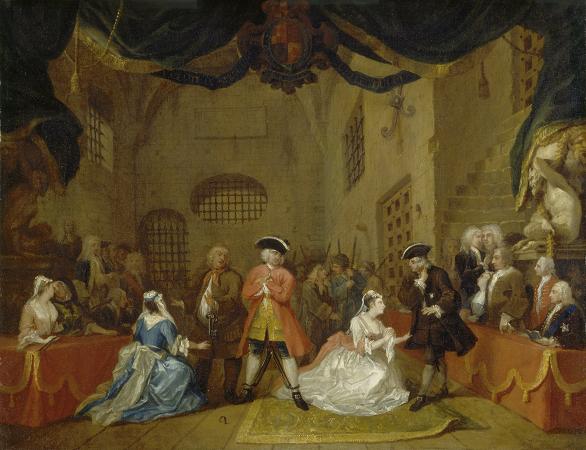Thomas Coram (1740). Oil on canvas. 239 x 147. Thomas Coram was born in Lyme Regis, Dorset, England. His father is believed to have been a master mariner. He was sent to sea at age 11. As such, he never received a proper education. In 1694, he was settled in what is now Dighton, Massachusetts, then part of Taunton. Coram lived in Dighton for ten years, founding a shipyard there. By a deed dated 8 December 1703, he gave 59 acres of land at Taunton to be used for a schoolhouse, whenever the people should desire the establishment of the Church of England. In the deed, he is described as of Boston, sometimes residing in Taunton, and he seems to have been a shipwright. He gave some books to form a library at St. Thomas' Church, Taunton, one of which, a Book of Common Prayer given to him by Speaker Onslow, is preserved in the church. In 1704, at the age of 36, he returned to London and helped to obtain an act of Parliament giving a bounty on the importation of tar from the colonies. He carried on business for some time. During the War of the Spanish Succession, he commanded a merchant ship and acquired the epithet of captain. In 1712, he obtained a role in Trinity House, Deptford, a private corporation that combined public responsibilities with charitable purposes. In 1717, he unsuccessfully promoted the idea of founding a colony to be called 'Georgia' in what is today Maine as a philanthropic venture. In 1719, he was stranded off Cuxhaven, when sailing for Hamburg in the Sea Flower, and the ship was plundered by the neighbouring inhabitants. He became known for his public spirit. Old Horace Walpole called him the honestest, most disinterested, most knowing person about the plantations he had ever talked with. He obtained an act of parliament taking off the prohibition upon deal from Germany and the Netherlands. In 1732, he was appointed one of the trustees for Georgia colony, then founded through James Oglethorpe's exertions. In 1735, he brought forward a scheme for settling unemployed English artisans in Nova Scotia. The plan was approved by the board of trade and, after being dropped for a time, was carried out before Coram's death. Brocklesby also states that on some occasion, he obtained a change in the colonial regulations in the interest of English hatters, and refused to take any reward from his clients except a hat. While living in Rotherhithe and regularly travelling into London to engage in his business interests, Coram was frequently shocked by the sight of infants exposed in the streets, often in a dying state. He began to agitate for the foundation of a foundling hospital. This institution was to be a children's home for children and orphans who could not be properly cared for. He laboured for seventeen years, and he induced many ladies of rank to sign a memorial. A charter, signed by King George II, was at last obtained for the Foundling Hospital in 1739 and considerable sums were subscribed. The first meeting of the guardians was held at Somerset House on 20 November 1739. At a later court, a vote of thanks was presented to Coram, who requested that thanks should also be given to the ladies interested. Some houses were first taken in Hatton Garden, where children were first admitted in 1741. A piece of land was bought for E7,000 in Bloomsbury. Lord Salisbury, the owner, insisted that the whole of his ground as far as Gray's Inn Lane should be taken; but he subscribed E500 himself. The foundation stone of the hospital was laid on 16 September 1742. In October 1745, the west wing was finished and the children removed from Hatton Garden. Great interest was excited in the undertaking, especially by William Hogarth, who in May 1740 presented his fine portrait of Coram to the hospital. Hogarth also presented a picture of Moses with Pharaoh's daughter, and gave 157 tickets in the lottery for the March to Finchley, one of which won the prize. In addition, he introduced a portrait of Coram into an engraved power of attorney for receiving subscriptions to the hospital. Handel gave performances at the hospital in 1749 and 1750. Coram continued to be invested in the hospital. Up until 1742, he continued to be elected to the General Committee. But at the May Day meeting in 1742 he received too few votes to qualify, and as a result no longer had any say in the management of the hospital. The reason why he was pushed out is not entirely clear. He was said to have spread defamatory rumours about two of the governors. Another possible reason is that he expressed criticism toward the way the hospital was run. In his later years, he advocated a scheme for the education of Native American girls in America. During his time in America, he lived and worked with Native Americans leading to an interest in promoting and supporting their education: specifically the girls.
more...



